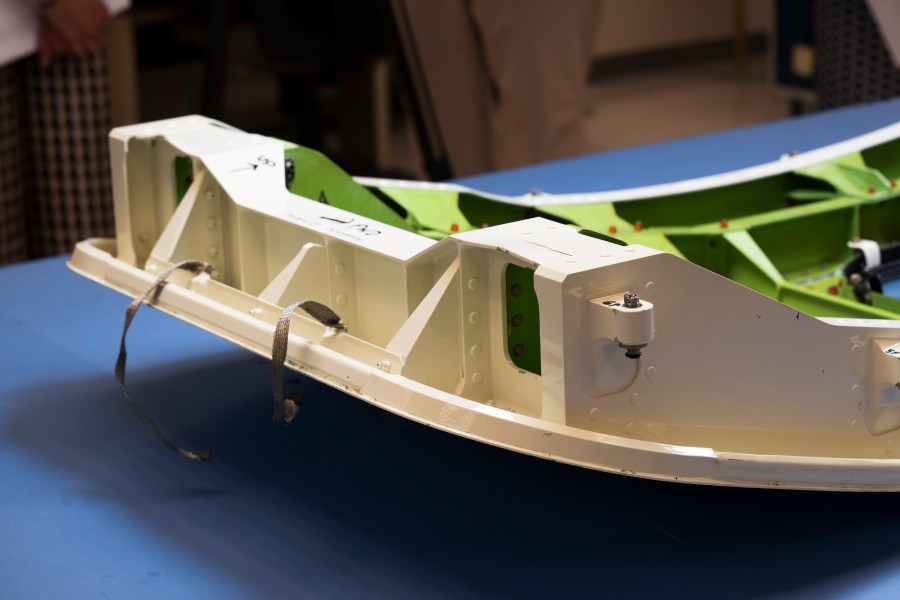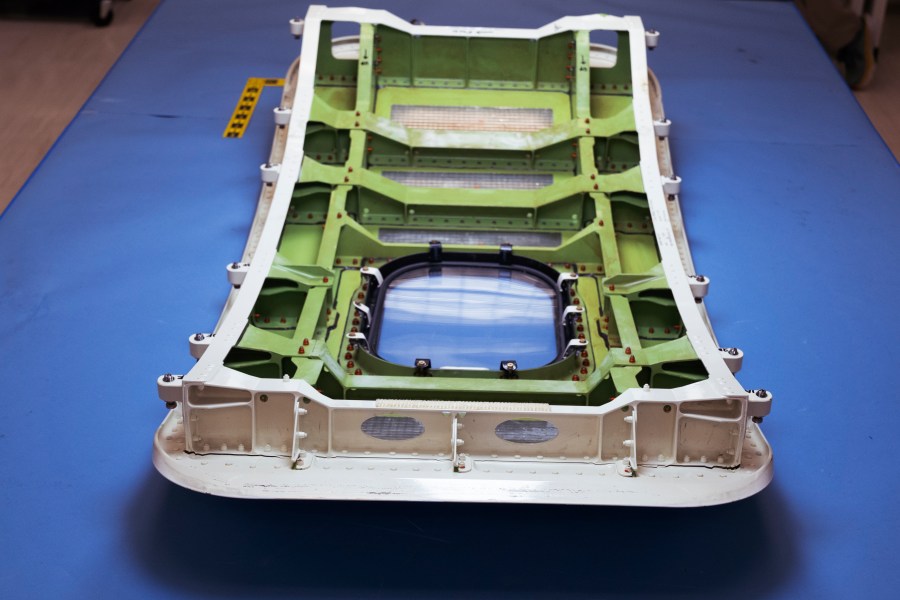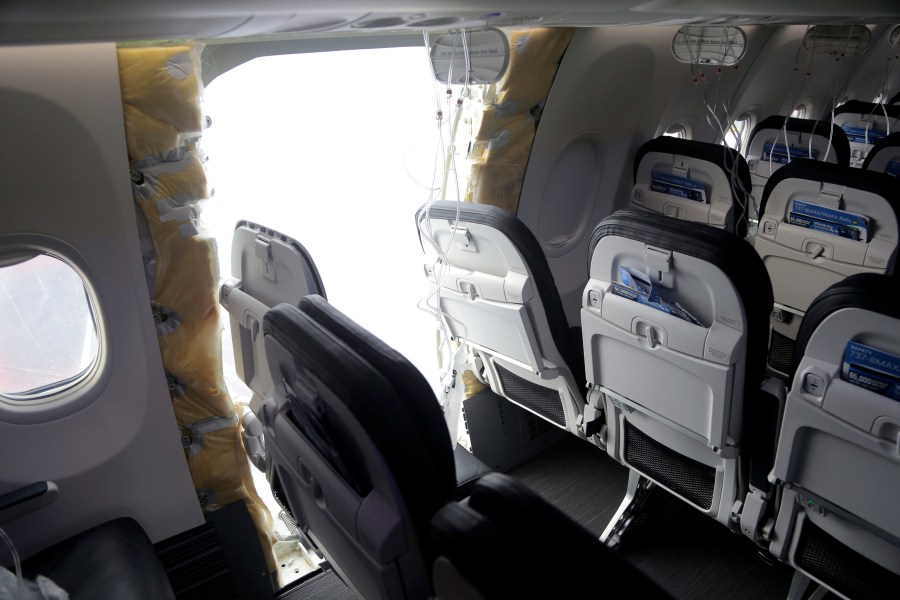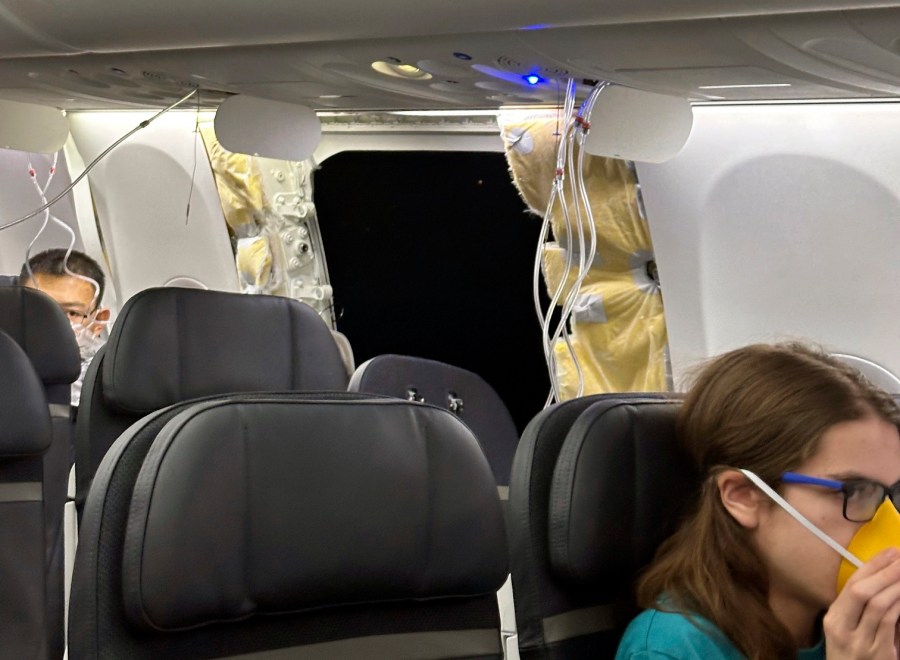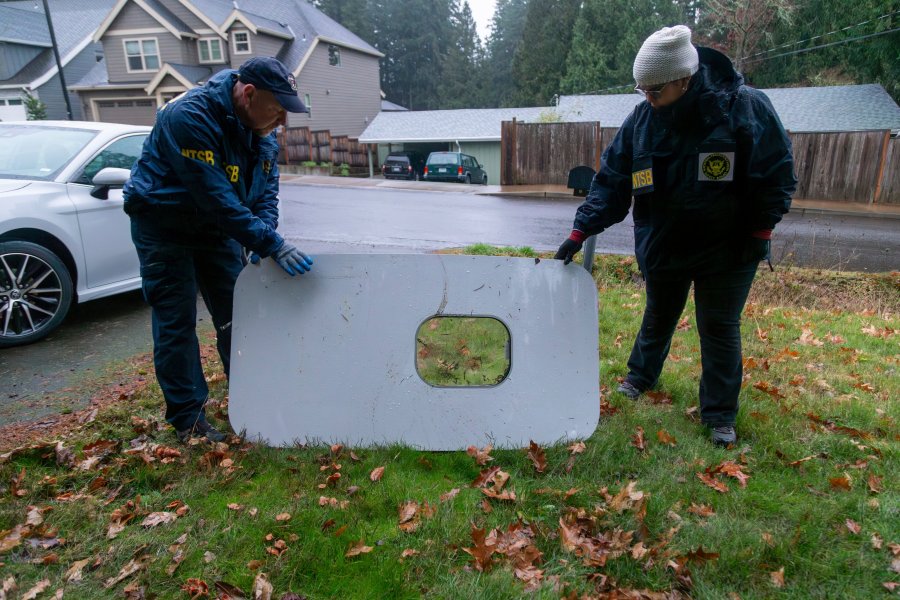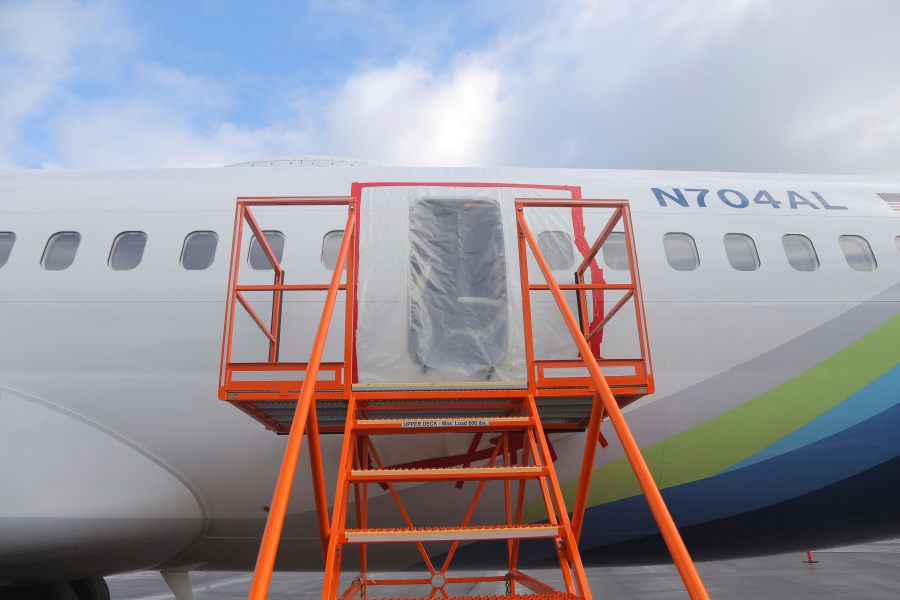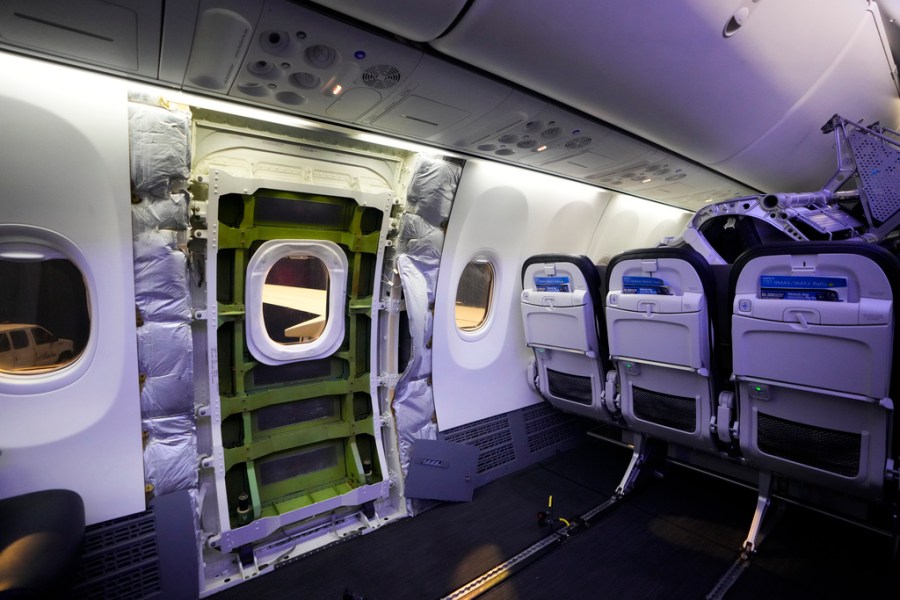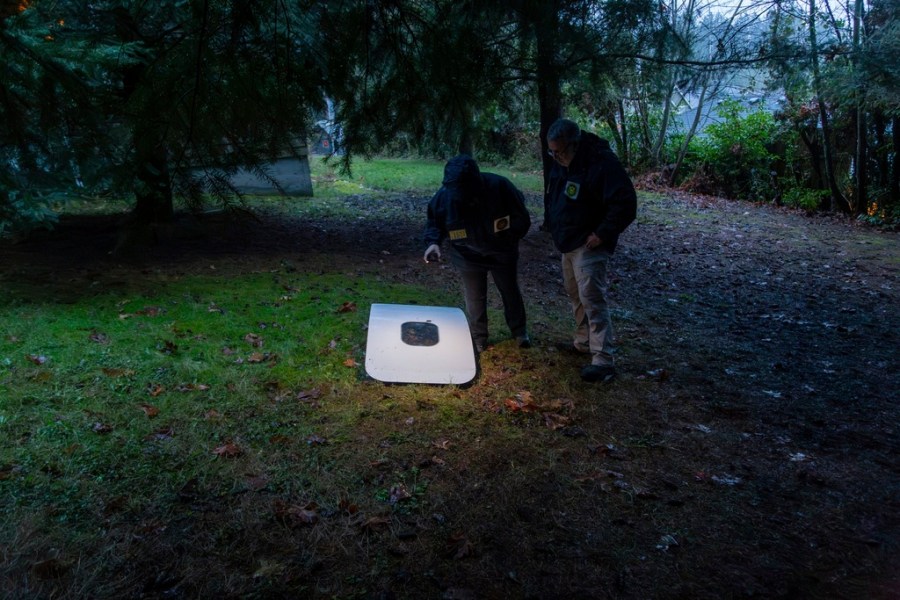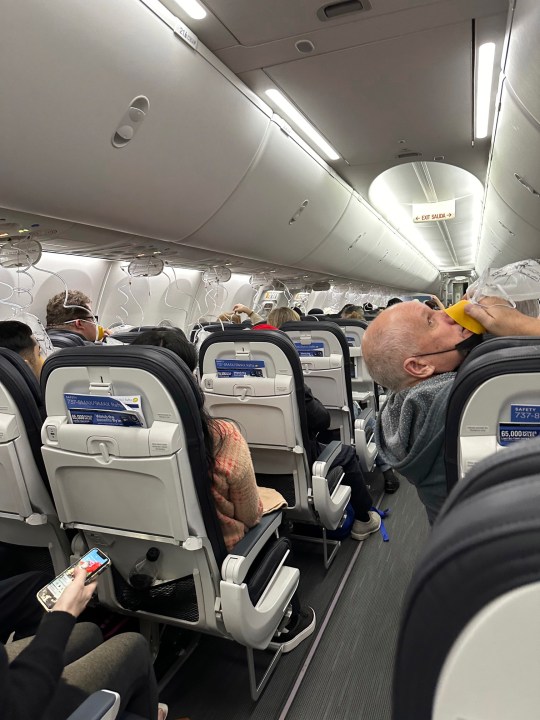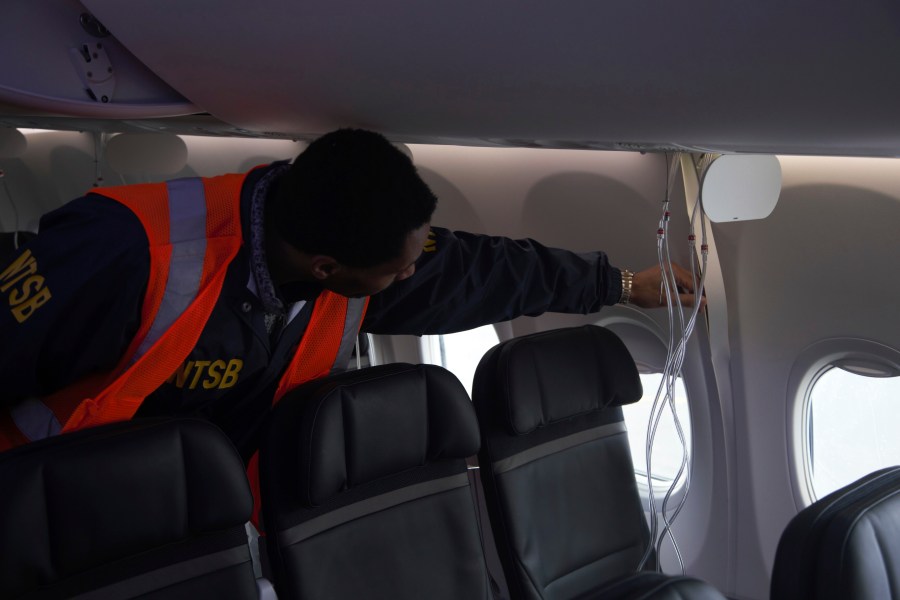Boeing testifies before NTSB on Alaska Airlines door plug blowout
- A door plug blew off a Boeing aircraft during a flight in January
- NTSB investigation remains ongoing
- Hearing's focus: Boeing 737 Max 9 plane production, aircraft inspections
(NewsNation) — The National Transportation Safety Board began a two-day investigative hearing Tuesday in Washington, D.C., on the Jan. 5 Alaska Airlines midflight door plug blowout.
The hearing is expected to be the most comprehensive analysis of why the door plug separated and blew off the Boeing 737 Max aircraft at 16,000 feet in the sky.
The accident further tarnished Boeing’s safety reputation and left it facing new legal jeopardy.
NTSB hearing: What to expect
The two-day hearing could provide new insight into the Jan. 5 accident, which caused a loud boom and left a gaping hole in the side of the Alaska Airlines jet.
The NTSB has said in a preliminary report that four bolts that help secure the panel, which covers a hole where an emergency exit door can be placed, were not replaced after a repair job in a Boeing factory. However, the company has said the work was not documented.
During the two-day hearing, NTSB members are expected to question Boeing officials about the lack of paperwork that might have explained how such a potentially tragic mistake occurred. Board members are also expected to hear testimony from the company that manufactured the door plug, Spirit AeroSystems.
Testimony is also expected from the International Association of Machinists and the Federal Aviation Administration.
Tuesday’s hearing will focus on the production of Boeing 737 Max 9 planes and aircraft inspections.
The safety board will not determine a probable cause after the hearing. That could take another year or longer. It is calling the unusually long hearing a fact-finding step.
The goal of the two-day hearing will be for the NTSB to complete its investigation and later make safety recommendations.
Alaska Airlines door plug blowout
The hearing comes after the NTSB displayed the actual door plug that blew off Flight 1282 at its lab.
So, what happened Jan. 5?
The incident occurred minutes after takeoff from Portland, Oregon, as the plane flew at 16,000 feet. Oxygen masks dropped during the rapid decompression and a few cellphones and other objects were swept through the hole in the plane. Passengers were terrified by the wind and roaring noise.
Despite a loss of pressure in the cabin, none of the 171 passengers or six crew members died, and the plane landed safely back in Portland. Only eight people on the aircraft reported minor injuries.
The door plug was found in a high school science teacher’s backyard in Cedar Hills, Oregon.
No one from the airline was called to testify this week before the NTSB. John Goglia, a former NTSB member, said that indicates the agency has determined “that Alaska has no dirty hands in this.”
The plane involved had been delivered to Alaska Airlines in late October and had made only about 150 flights. Shortly before the door panel blowout, the airline had stopped using the plane on flights to Hawaii after a warning light indicating a possible pressurization problem lit up on three different flights.
The accident led to several investigations of Boeing, most of which are still underway.
Boeing woes
Boeing has faced much scrutiny following the door plug incident, and the company has promised to improve its safety culture, including increasing inspections and improving employee training.
Tension remains high between the NTSB and Boeing. Two months after the accident, NTSB Chair Jennifer Homendy and Boeing got into a public argument over whether the company was cooperating with investigators.
Also, effective this week, Boeing announced its new CEO Robert “Kelly” Ortberg will replace former CEO Dave Calhoun.
Earlier this year, Calhoun faced pushback from lawmakers on Capitol Hill, with some accusing him of putting profits over safety.
Ortberg will be the company’s third chief executive in four and a half years.
The FBI has told passengers on the Alaska Airlines flight that they might be victims of a crime. The Justice Department pushed Boeing to plead guilty to a charge of conspiracy to commit fraud after finding that it failed to live up to a previous settlement related to regulatory approval of the Max.
Boeing, which has yet to recover financially from two deadly crashes of Max jets in 2018 and 2019, has lost more than $25 billion since the start of 2019.
Boeing also reported a $1.4 billion loss in revenue during its second quarter this year, which is around 10 times the loss it reported the same time last year.
The Associated Press contributed to this report.





